Published in 2016 by Enslow Publishing, LLC
101 W. 23rd Street, Suite 240, New York, NY 10011
Copyright 2016 by Salvatore Tocci
All rights reserved.
No part of this book may be reproduced by any means without the written permission of the publisher.
Cataloging-in-Publication Data
Tocci, Salvatore.
Science fair projects with everyday stuff / by Salvatore Tocci.
p. cm. (Prize-winning science fair projects)
Includes bibliographical references and index.
ISBN 978-0-7660-7020-2 (library binding)
1. Science projects Juvenile literature. I. Tocci, Salvatore. II. Title.
Q164.T36 2016
507.8d23
Printed in the United States of America
To Our Readers: We have done our best to make sure all Web site addresses in this book were active and appropriate when we went to press. However, the author and the publisher have no control over and assume no liability for the material available on those Web sites or on any Web sites they may link to. Any comments or suggestions can be sent by e-mail to .
Portions of this book originally appeared in the book Science Fair Success Using Household Products.
Illustration Credits: Modification of original art by Accurate Art, Inc; c/o George Barile; Enslow Publishing, LLC, pp..
Photo Credits: Africa Studio/.
Cover Credits: Africa Studio/Shutterstock.com (starch in spoon); AlenKadr/Shutterstock.com (toothbrush); Andrei Kuzmik/Shutterstock.com (toothpaste); Anest/Shutterstock.com (green dishwashing liquid); deniss09/Shutterstock.com (honey); design56/Shutterstock.com (lemon juice); hadkhanong/Shutterstock.com (liquid soap); KIM NGUYEN/Shutterstock.com (pink dishwashing liquid); Ohn Mar/Shutterstock.com (science background); Studio KIWI/ Shutterstock.com (bottle of suntan cream); TrotzOlga/Shutterstock.com (rubber gloves).
CONTENTS
Introduction
CHAPTER 1 Keeping You Clean
1.1 Getting Rid of Germs
1.2 Making Soap Patterns
 1.3 Killing Germs
1.3 Killing Germs
 1.4 Testing Toothpaste
1.4 Testing Toothpaste
1.5 Evaluating Shampoos
CHAPTER 2 Making You Look Good
 2.1 Recognizing Scents
2.1 Recognizing Scents
2.2 Comparing Skin Lotions
2.3 Cleaning With a Cream
 2.4 Preparing a Talcum Powder
2.4 Preparing a Talcum Powder
 2.5 Holding on to Water
2.5 Holding on to Water
CHAPTER 3 Heres to Your Health
 3.1 Testing for Vitamin C
3.1 Testing for Vitamin C
3.2 Preserving the Freshness of Fruits
 3.3 Dissolving a Vitamin Tablet
3.3 Dissolving a Vitamin Tablet
 3.4 Protecting Yourself Against the Sun
3.4 Protecting Yourself Against the Sun
3.5 Killing Bacteria
CHAPTER 4 Making Your Feel Better
 4.1 Analyzing Aspirin
4.1 Analyzing Aspirin
4.2 Analyzing Aspirin Substitutes
 4.3 Providing Relief
4.3 Providing Relief
CHAPTER 5 Cleaning House
5.1 Comparing Soap and Detergent
5.2 Checking Out an Emulsifier
 5.3 Blowing Big Bubbles
5.3 Blowing Big Bubbles
5.4 Floating on Water
 5.5 Getting Out Stains
5.5 Getting Out Stains
5.6 Conducting Electricity
Further Reading
Web Sites
Appendix: Science Supply Companies
Index
INTRODUCTION
Science may be your favorite subject in school. Like many students, perhaps the reason you like science is because you like to carry out experiments. Most students find it fun to mix chemicals, pour solutions, or work with scientific equipment. They are often surprised by what they see. The chemicals may turn a different color, the solutions may start to bubble, or a microscope may reveal a rather unusual-looking creature living in a drop of pond water.
If you like to do experiments, then you have come to the right place. The experiments in this book are designed to use products that you can easily find at home, including toothpaste, aspirin, and dishwashing detergent. Each experiment in this book is designed to teach you something about the science behind these products. For example, you will learn why water alone cannot remove the grease from your hands or dirty clothes. To get really clean, you need soap or detergent.
Most of the experiments in this book will also make you a better educated consumer. For example, you may discover which toothpaste cleans your teeth best, which aspirin is least likely to upset your stomach, or which detergent gets the dirt out of your clothes best. As a result, your next purchase of a household product may be based on what you learn from this book and not because of what you hear or read in an advertisement. But most of all, you should find the experiments in this book fun to do.
Benefits of Doing Experiments
When you perform an experiment, you actually get to do science rather than simply read or hear about it. Experiments allow you to be an active participant in your learning process. Performing experiments can be a more interesting way to learn, compared to reading about science from a book or listening to someone explain it. This is not to say that reading and listening are not important. But there are times when an experiment is a more effective way to learn and understand. Doing an experiment can also be more challenging and force you to think. In effect, performing an experiment allows you to play the role of detective. You must observe closely and arrive at some answer to explain what happened.
Experiments often allow you to be creative. True, the directions as to what to do in an experiment in school are always provided. But there is nothing preventing you from adding your own ideas. For example, the directions may call for gently heating a solution to see what happens. But you may decide to see what happens if you slowly cool the same solution. Perhaps you will observe something that was totally unexpected. There is one very important caution if you decide to investigate something on your own: Be sure to check with your science teacher or an adult before you do the experiment. Have them review your plan before you start. In that way, you will not be putting yourself or anyone else in danger.
The reason you do an experiment is to answer a question or solve a problem. But experiments often lead to more questions. For example, this book describes an experiment designed to show how an antacid works in reducing excess stomach acid. After you finish the experiment, you may want to check to see if other antacid products work as well or even better. You can also investigate whether antacids are more effective when their temperature is close to body temperature rather than to room temperature. In effect, the results of one experiment can easily lead you to start thinking about doing another experiment.
Almost none of the experiments that you do in school will produce any surprises. That is because the experiment has been designed so that you are sure to learn something about the topic you are studying. But be aware that not all experiments are like this. Scientists often observe things that they did not expect to see in their experiments. This is another reason that experiments are fun to do. In many cases, these unexpected observations have led to some valuable findings. Penicillin and nylon are just two of the many discoveries that were made unexpectedly by scientists. The possibility of an unusual outcome adds to the excitement of carrying out an experiment, so be sure to observe closely and note everything that happens in an experiment. You can always check with your science teacher if you think that something unexpected did happen.

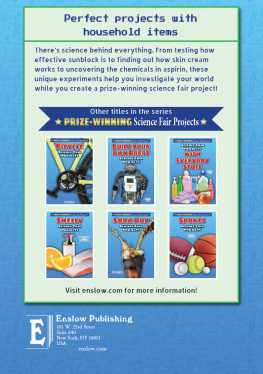

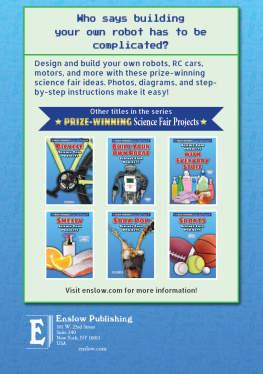
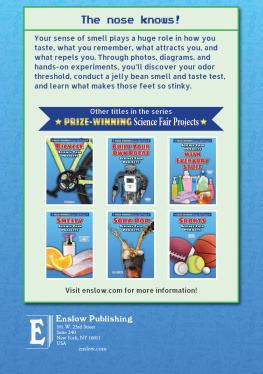
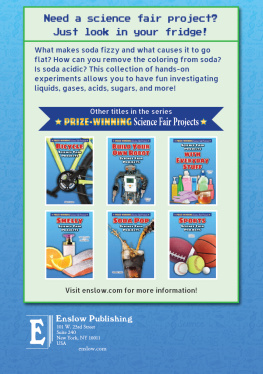
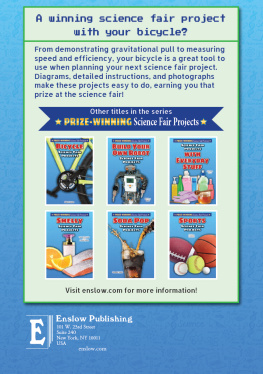

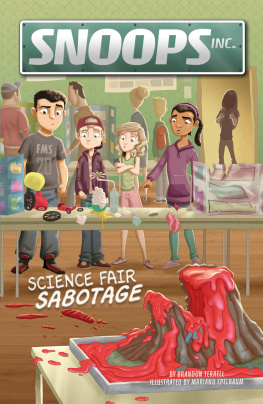
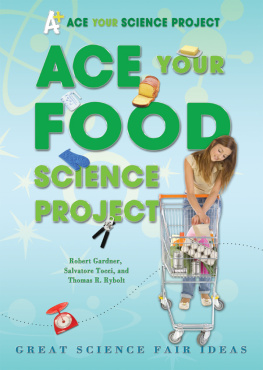
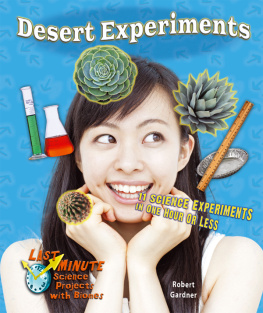
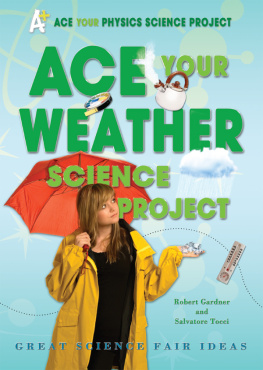
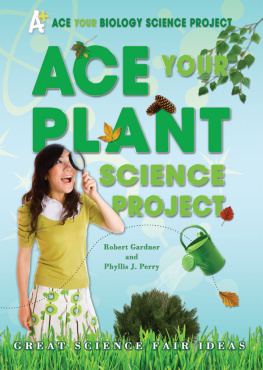


 1.3 Killing Germs
1.3 Killing Germs